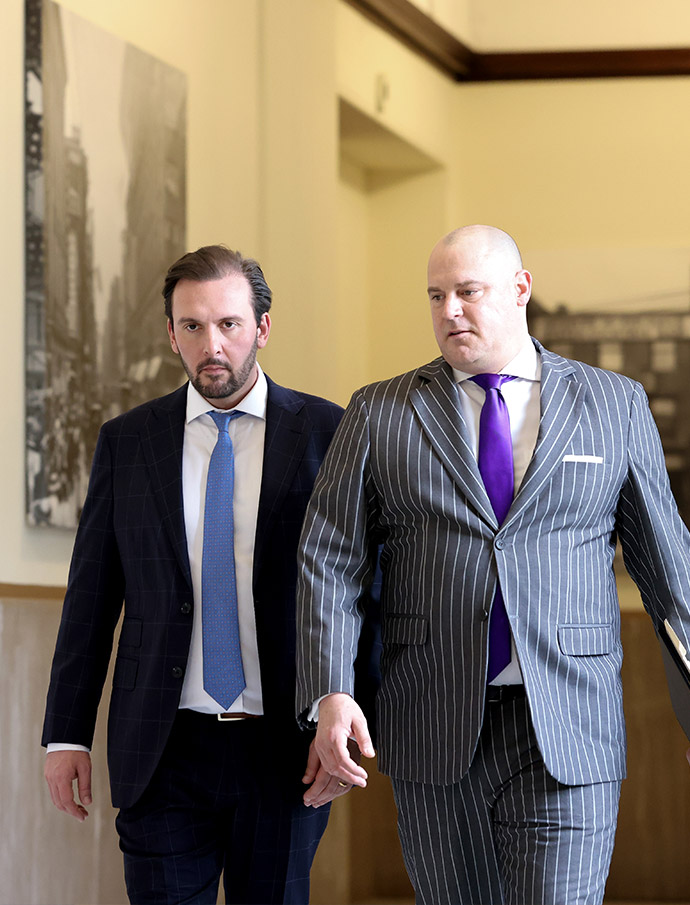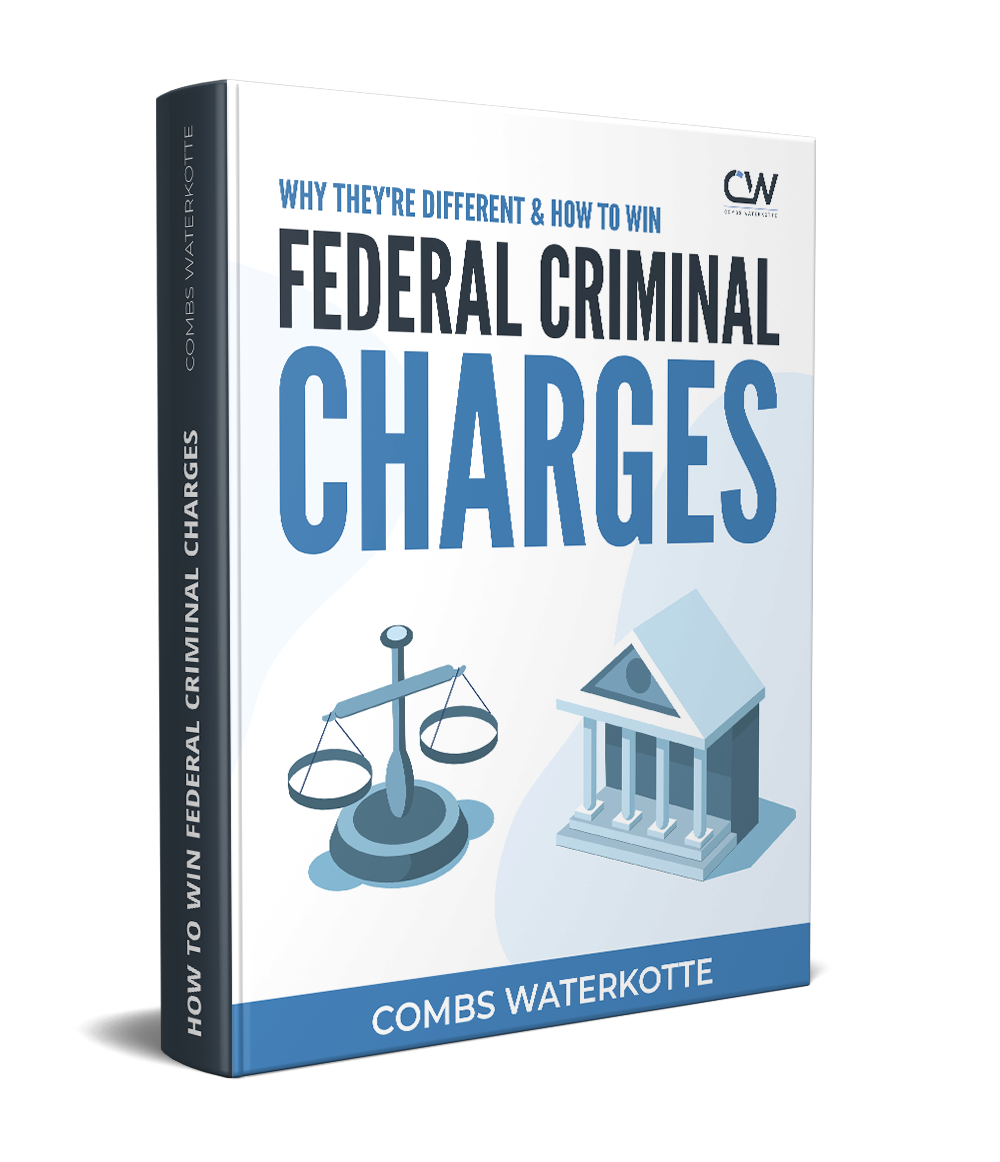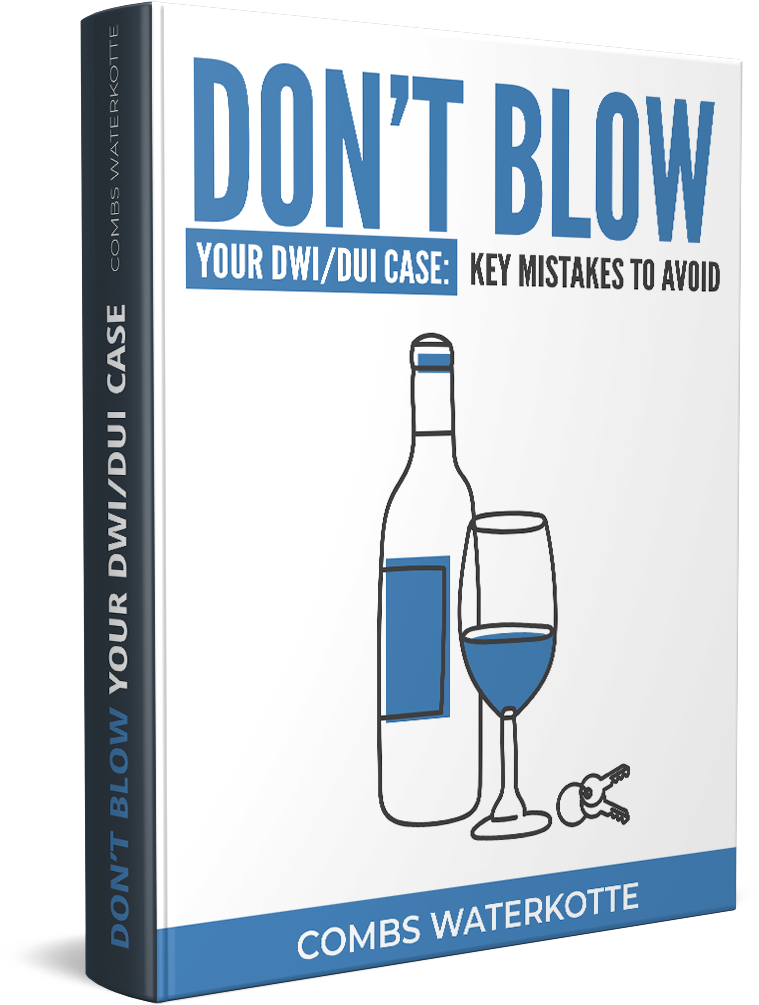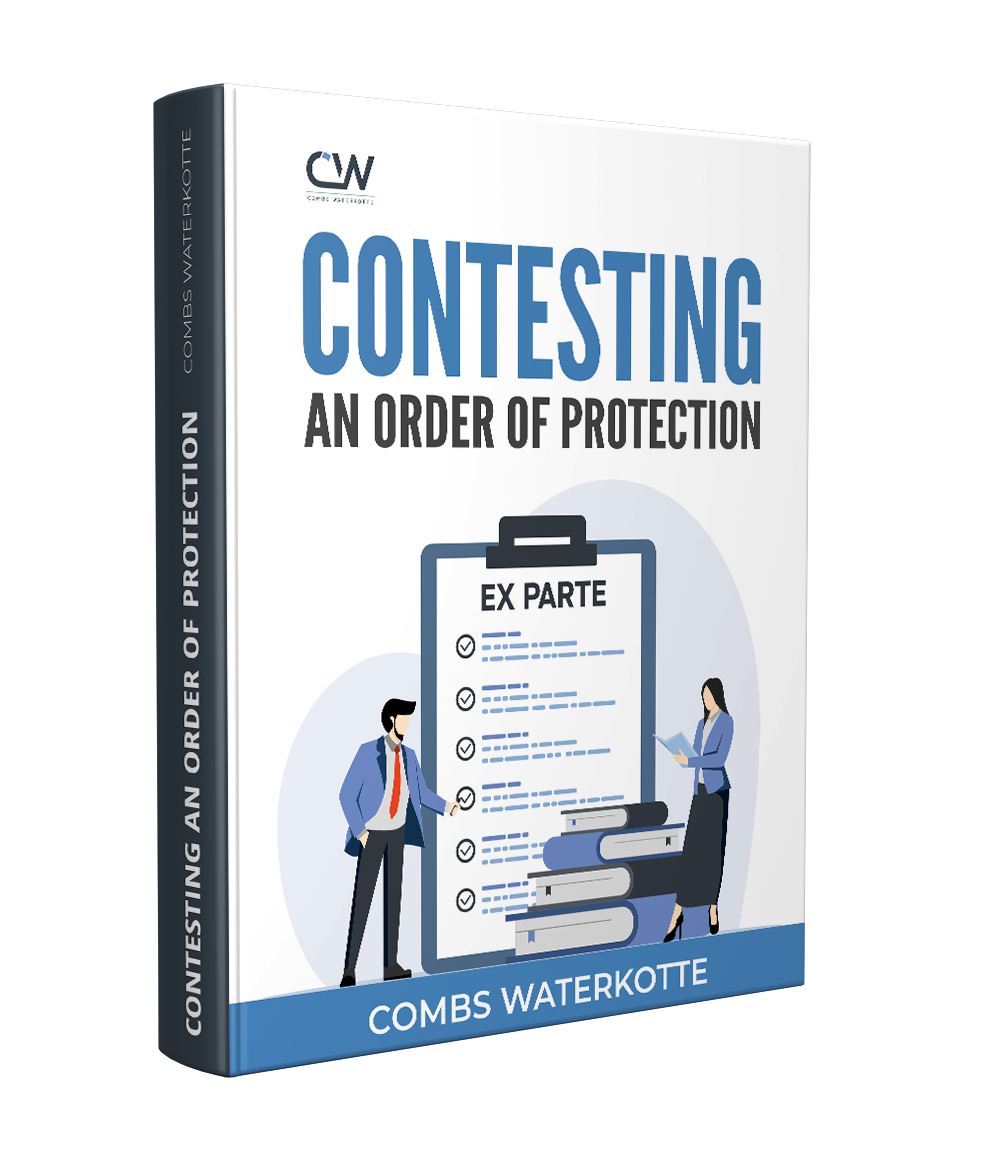Additional Links
What Counts as Federal Counterfeiting or Forgery?
Federal counterfeiting and forgery charges apply when someone makes, alters, or passes items intended to look like genuine U.S. currency, government checks, securities, or official documents. The key is intent: prosecutors must show you knowingly tried to defraud or deceive. These cases almost always fall under Title 18, Chapter 25 of the U.S. Code and are prosecuted in U.S. District Court.
What's the difference between counterfeiting and forgery?
Counterfeiting usually means producing false items—like printing fake bills or fabricating bonds. Forgery involves falsifying or altering something that exists, such as endorsing a Treasury check that isn’t yours or changing information on a federal ID. Both are felonies that carry severe penalties if convicted.
What makes a case “federal” instead of state?
While most run-of-the-mill check or contract forgeries are handled in Missouri state courts, federal jurisdiction kicks in whenever the conduct touches U.S. obligations, federal programs, or interstate activity. That’s why even small-scale acts—like trying to pass a single counterfeit bill—can lead to a federal indictment.
Does quality matter if the counterfeit looks fake?
Yes. Even crude or poorly made bills or documents can lead to federal charges if prosecutors show you had intent to use them for fraud. The law focuses more on intent than on whether the fake could actually fool someone.
If federal agents are asking questions about counterfeit money or forged documents, it means they’re already building a case. Call (314) 900-HELP to get a Missouri federal white collar crimes lawyer involved immediately.
What Happens After a Federal Counterfeiting Arrest in Missouri?
Once federal agents make an arrest for counterfeiting or forgery, the case immediately enters the U.S. District Court system. You will be taken before a federal magistrate judge for an initial appearance, where the charges are read, detention or release is argued, and deadlines are set. Bail in federal court is far more limited than in state cases, so you need to have a Missouri federal crimes defense lawyer ready to argue for your release.
After the initial hearing, prosecutors usually secure an indictment through a grand jury. From there, the discovery process begins. This is when the government turns over the evidence it intends to use, such as seized currency, printers, hard drives, or surveillance. Your lawyer can challenge how that evidence was collected and file motions to suppress if agents violated your rights.
These early stages often determine the entire direction of the case. Strong motion practice can shrink the government’s evidence before trial, while strategic negotiations may lead to reduced charges or dismissal. Without immediate, experienced representation from a Missouri federal defense attorney, you risk losing the chance to shape the outcome before the prosecution’s case hardens.
Federal cases move fast. If you or a loved one has been arrested for counterfeiting or forgery in Missouri, call (314) 900-HELP today to get an attorney in your corner before the next hearing.
Penalties and Exposure in Federal Counterfeiting Cases
Federal counterfeiting and forgery convictions carry harsh consequences. Prison sentences can range from several years to decades, depending on the statute, with maximums up to 20 years under 18 U.S.C. §§ 471–476. Courts may also impose fines, restitution to victims, and forfeiture of printing devices, computers, or other tools used in the alleged scheme. Federal sentencing is driven by the U.S. Sentencing Guidelines, which set ranges based on the seriousness of the offense and your criminal history.
How the Federal Sentencing Guidelines apply
Judges begin with a base offense level from the Guidelines, then add enhancements if certain factors are present. This calculation heavily influences the sentence you face.
What increases offense level in counterfeiting?
Enhancers include the face value of counterfeit items, use of special equipment like plates or digital printers, the number of people involved, and whether the operation was tied to an organized scheme. These details can shift a sentence from probation-range into double-digit years.
Collateral consequences
Beyond prison and fines, a conviction can damage employment opportunities, professional licenses, financial standing, and immigration status. Even after release, supervised release terms can limit travel and business activity for years.
First-time offender in Missouri: real prison risk?
Yes. Even first-time defendants can face real prison exposure if the value of the counterfeit items is high or if sophisticated means were used. Judges have discretion, but without strong advocacy and mitigation, probation is rare in federal counterfeiting cases.
Federal penalties are severe, but they are not automatic. Neither is a conviction. Effective defense work—including challenging enhancements and presenting mitigating evidence—can reduce exposure. Call (314) 900-HELP now to start building your defense strategy.
Do You Need a Missouri Federal Lawyer for Forgery Charges?
Yes. Federal forgery charges are not the same as ordinary state-level cases. They involve U.S. obligations, government checks, or documents tied to federal programs, which means the rules of evidence, procedure, and sentencing are far stricter. The U.S. Attorney’s Office prosecutes aggressively, backed by agencies like the Secret Service and FBI, and the penalties can easily run into years in federal prison.
A federal defense lawyer understands how these cases are built and where they can be challenged. From the first hearing, your attorney can argue for release, suppress unlawfully obtained evidence, and start shaping the narrative before the government locks in its version of events. Without that specialized experience, Missouri counterfeit and forgery defendants risk being swallowed by complex rules and unforgiving sentencing guidelines.
Missouri prosecutors may handle some forgery cases under state law, but when the federal government takes jurisdiction, you cannot afford to rely on a lawyer unfamiliar with U.S. District Court. The difference between state and federal practice is not just paperwork. It can mean the difference between walking free and spending years in custody.
If you’re accused of forging or altering federal documents in Missouri, call (314) 900-HELP right away. The earlier a federal defense lawyer is involved, the more options you have.
Title 18 Charges We See in Missouri
Federal counterfeiting and forgery laws live in Title 18, Chapter 25 of the U.S. Code. These statutes cover everything from making fake bills to forging Treasury checks. Here are the charges we most often see in Missouri federal cases:
18 U.S.C. § 471 — Making or Altering U.S. Obligations
Covers creating or altering U.S. currency or securities. Example: printing fake $100 bills or altering serial numbers. Penalty: Up to 20 years in prison and fines.
18 U.S.C. § 472 — Passing or Possessing Counterfeit Money
Criminalizes using, attempting to use, or possessing counterfeit bills with intent to defraud. Example: trying to spend a single counterfeit note at a store. Penalty: Up to 20 years in prison and fines.
18 U.S.C. § 473 — Dealing in Counterfeit Obligations
Applies to selling, exchanging, or distributing counterfeit bills. Example: moving fake currency between buyers and sellers. Penalty: Up to 20 years in prison and fines.
18 U.S.C. § 474 — Plates, Stones, and Devices
Targets possession of printing plates, digital files, or special paper used to make counterfeit notes. Example: having a printer set up with templates for U.S. currency. Penalty: Up to 25 years in prison and forfeiture of equipment.
18 U.S.C. § 476 — Foreign Government Obligations
Criminalizes counterfeiting or possessing fake currency or securities from foreign governments. Example: attempting to use fake Euros in Missouri. Penalty: Up to 20 years in prison and fines.
18 U.S.C. § 510 — Forging Treasury Checks or Bonds
Covers forging or passing false endorsements on U.S. Treasury checks, bonds, or securities. Example: signing someone else’s name on a federal tax refund check. Penalty: Up to 10 years in prison (or up to 25 years if over $1,000 is involved).
Other related statutes to watch
Prosecutors may also use § 513 (state/corporate securities, up to 10 years), § 514 (fake financial instruments, up to 10 years), § 1028 (false IDs, up to 15 years), § 1344 (bank fraud, up to 30 years), or intellectual property statutes like §§ 2318–2320 (counterfeit labels, goods, or trademarks, penalties up to 20 years).
If your charge lists one of these statutes, it means federal prosecutors are pursuing maximum penalties. A federal defense lawyer who knows the language of Title 18 is essential from day one.
Defenses That Work in Federal Counterfeiting and Forgery Cases in Missouri
Federal prosecutors must prove every element of counterfeiting or forgery beyond a reasonable doubt—including that you knowingly intended to defraud. A skilled defense lawyer can attack those elements from several angles, often before a case ever reaches trial. The right defense depends on the evidence, but the most effective strategies share one goal: shrinking the government’s case until it can’t stand.
Lack of intent or knowledge
You cannot be convicted just for possessing fake bills or a forged document—prosecutors must show you knew it was counterfeit and intended to use it. Innocent possession or being misled by others can undercut the government’s theory.
Item not legally “counterfeit”
Not every fake qualifies under the law. Notes or documents so crude that no reasonable person would be fooled may not meet the definition of “counterfeit.” Defense experts often testify about quality and capability to deceive.
Challenging searches and seizures
Federal agents often seize computers, printers, and digital files. If they overstepped with search warrants, seized items outside the warrant’s scope, or violated your rights during questioning, key evidence can be suppressed and kept out of court.
Attacking forensic methods
The government relies on lab analysis to claim items are counterfeit. Errors in testing, sloppy chain-of-custody, or overstated expert conclusions can all be used to weaken the prosecution’s proof.
Identity and credibility issues
Many cases hinge on informants, accomplices, or surveillance. Showing that a witness has credibility problems, or that the government cannot prove you were the one who actually made or passed the items, can be enough to create reasonable doubt.
Federal counterfeiting and forgery cases are beatable. The earlier we investigate agents’ conduct, expert reports, and witness credibility, the more chances we have to dismantle the government’s case.
The Federal Case Timeline in Missouri: From Investigation to Sentencing
Federal counterfeiting and forgery cases move quickly, and each stage brings high stakes. From the moment agents begin investigating until sentencing or appeal, deadlines and procedures are strict. Knowing what to expect helps you avoid mistakes and shows where an experienced defense lawyer can make the biggest difference.
Step 1: Investigation
Most cases begin with the Secret Service, FBI, or Postal Inspectors gathering evidence—surveillance, seized documents, or undercover operations. By the time you learn you’re a target, they may already have built a substantial file.
Step 2: Arrest, Complaint, or Indictment
Agents may arrest you directly, file a criminal complaint, or take evidence to a federal grand jury for indictment. This step sets the official charges.
Step 3: Initial Appearance and Detention
A magistrate judge decides whether you’ll be released or held. Unlike state court, bail is limited, and the government often pushes for detention in fraud cases.
Step 4: Discovery and Pretrial Motions
Prosecutors turn over evidence like seized currency, printers, or digital files. Your Missouri federal counterfeiting and forgery lawyer can move to suppress illegally obtained evidence, challenge expert reports, and attack the way searches were conducted.
Step 5: Negotiations and Guideline Analysis
Federal sentencing guidelines heavily influence outcomes. A skilled attorney can calculate your exposure, negotiate with prosecutors, and push for reduced counts or lighter sentencing recommendations.
Step 6: Trial Strategy and Jury Issues
If the case goes to trial, the government must prove intent to defraud beyond a reasonable doubt. Defense strategies include cross-examining agents, challenging forensic experts, and highlighting weaknesses in the government’s chain of custody.
Step 7: Sentencing and Variances
If convicted or if a plea deal is reached, the judge applies the Guidelines but can consider mitigating factors such as lack of prior record, duress, or cooperation. Effective mitigation work can mean years off the sentence and keep you out of prison.
Step 8: Appeals and Post-Conviction Relief
Even after sentencing, you may have grounds for appeal based on trial errors, constitutional violations, or ineffective assistance of counsel. Experienced federal lawyers preserve these issues from the start.
Each step of a federal case is a chance to protect your future—or lose it. The earlier you have an experienced federal defense lawyer at your side, the stronger your position will be at every stage.
Examples of Federal Counterfeiting and Forgery Cases in Missouri
Federal counterfeiting and forgery charges don’t all look the same. Some cases involve sophisticated operations with printers and plates, while others start with a single fake bill or altered check. Here are common scenarios we see in Missouri federal court:
- Printing or attempting to pass counterfeit U.S. currency
- Forging endorsements on U.S. Treasury checks or bonds
- Possessing plates, printers, or digital files used to create counterfeit notes
- Using counterfeit foreign currency such as Euros in Missouri transactions
- Circulating fake checks or money orders tied to interstate fraud schemes
- Sharing or storing digital templates and “tutorials” for counterfeit bills
Each of these examples can trigger different statutes and penalties, but the constant is this: once federal agents believe you intended to defraud, the case becomes a federal felony with years of prison exposure on the table.
Even a single counterfeit bill can escalate into a federal indictment. If you’re under investigation for any of these scenarios, call (314) 900-HELP to protect yourself before the government builds its case.


































